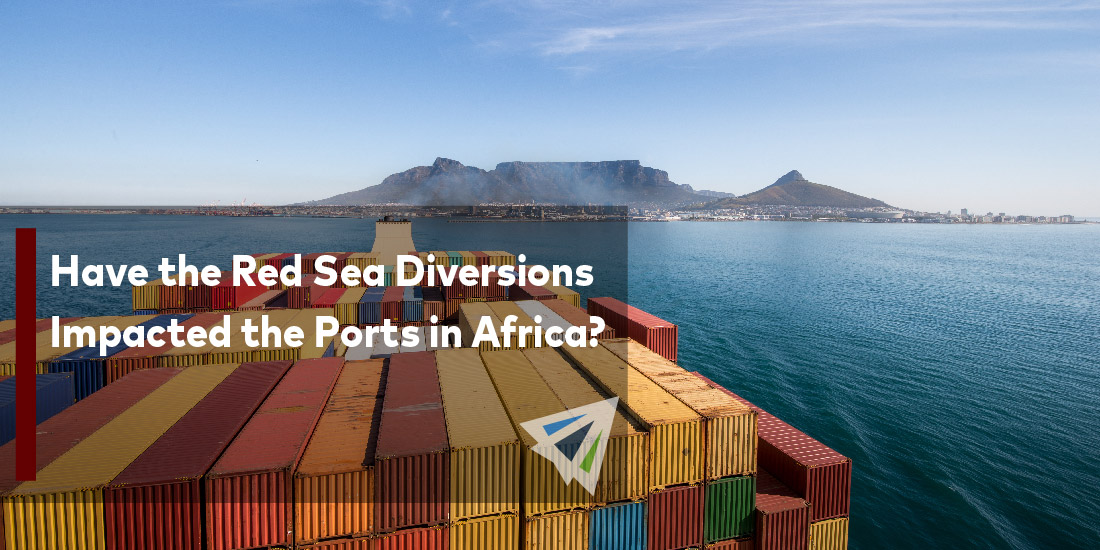Significant upheavals have recently affected the world’s marine environment, especially in the region of the Red Sea and Suez Canal. These interruptions, which are the result of geopolitical tensions and wars, have had an impact on maritime routes as well as African ports, raising questions about their operational effectiveness and long-term plans.
Political Tension Causes Disruptions
The Houthi militias in Yemen and the current Israel-Hamas conflict have resulted in a number of attacks on commercial vessels in the Red Sea and its environs. Major shipping corporations have rerouted their boats away from the region due to the targeting of vessels in critical maritime chokepoints including the Gulf of Aden and the Bab al-Mandab Strait. This has resulted in a substantial reduction in transit via the Suez Canal. African ports have been negatively impacted by this diversion, especially those that depend on commerce from the Red Sea.
Container Movement Slows
A notable consequence seen at African ports is the decrease in vessel calls and container movements, especially in ports like Egypt’s Port Said and Yemen’s Port of Aden. Port infrastructure is under stress due to the decline in vessel calls, which has resulted in longer ship wait times and lower productivity at numerous important African ports. Along with rising container volumes, this productivity drop has brought attention to the continent’s need for operational and infrastructural enhancements.
Furthermore, the Red Sea interruptions have highlighted the necessity of diversifying cargo routes and revealed how susceptible African ports are to outside shocks. Despite the difficulties, certain ports, like Tanger-Med and Mombasa, have been able to maintain or even grow productivity, while others have found it difficult to handle the increased demand and congestion. In numerous African ports, dwell periods for import and export containers have increased noticeably, underscoring inefficiencies in port operations and logistics.
Exploring Additional Routes
Shipping corporations are investigating other east-west routes, avoiding the Suez Canal entirely, in response to the Red Sea problem. Ports strategically positioned along this route have benefited from this shift in traffic, which has increased travel over the longer, but safer, route around the southern point of Africa. An increase in traffic has been observed in ports in East Africa, Madagascar, South Africa, Namibia, and Mauritius. This suggests that there is room for route diversification and that strategic placement is crucial for the maritime sector.
Some ports have profited from the additional traffic, while others have struggled to keep up with the demands of the rerouted shipping lanes. For example, inefficiency, traffic jams, and power supply problems have made it difficult for South African ports to take full advantage of the Red Sea situation. The necessity for strategic improvements in port infrastructure and services is further highlighted by the rise in delays and expenses encountered by ports along the coasts of West and Central Africa.
Strategizing for the Future
African ports have to reassess their investments and plans in light of the Red Sea issue. Although a resolution to the situation is anticipated, it has brought attention to the significance of adaptation and resilience in the face of global uncertainty. In order to minimize future disruptions and improve competitiveness in the global marine sector, African governments are now reevaluating their port infrastructure and connectivity efforts. There is a renewed emphasis on establishing intra-African and worldwide connections.
In conclusion, there is no denying that the Red Sea diversions have had an influence on African ports, but they have also offered chances for development and adaptability. African ports can take a leading role in the changing global marine scene by investing in strategic infrastructure projects and tackling operational inefficiencies.
Should you have any questions regarding this and how it could impact your shipments, please reach out to our team today. Additionally, we have our weekly market updates that provide relevant freight news, updates, developments across the industry, and more.
